
Director of the Tax Department Mai Xuan Thanh speaks
"Sufficient - clean - alive" data is the key to budget management in the digital age
On November 18, the Tax Department ( Ministry of Finance ) coordinated with the Project Office - German Agency for International Cooperation (GIZ) to co-organize a workshop titled "Modernizing tax statistics, sharing data for forecasting and managing state budget revenue". The workshop brought together key leaders of the Tax sector and international experts to discuss the increasingly important role of statistics and data in the digital age.
Speaking at the opening session, Director of the Tax Department Mai Xuan Thanh emphasized that in modern state management, especially in the field of tax, data is an asset and statistics are the key to unlocking the value of that asset.
In the context of strong digital transformation, statistics have gone beyond the role of a data collection and synthesis tool, becoming a "rational language" that helps managers identify the nature, grasp the rules and understand the trends of the economy . In particular, digital statistics play an increasingly important role when it allows processing large volumes of data in real time and applying advanced analytical technologies such as artificial intelligence (AI) to transform raw data into valuable information.
Modern tax statistics are not simply a synthesis of collection figures. Statistics must aim at real-time data, in-depth analysis and highly reliable forecasting models. Tax statistics reflect the revenue structure, health and trends of the economy, serve policy making, build reliable budget collection scenarios, serve macro management. It also helps to promptly identify and effectively isolate subjects with signs of tax non-compliance.
In the era of national development, the Tax sector is processing a huge and complex amount of data, coming from electronic invoices, cross-border transactions and e-commerce platforms. Currently, the Tax sector is managing over 2.1 quadrillion VND of state budget, 22 revenue items, taxes with tens of millions of taxpayers.
To improve the efficiency of tax management and statistics, the Tax sector has gradually built an electronic ecosystem, including: electronic tax declaration and payment, electronic invoices, eTax Mobile application, electronic information portals for foreign suppliers, individual e-commerce business households, entrepreneurs, enterprises, AI chatbots and inter-sectoral coordination mechanisms.
Challenges of the current tax statistics system
Director Mai Xuan Thanh also frankly acknowledged that statistical work and data sharing have not kept up with the pace of change in practice. The current tax statistical system is still posing major challenges, requiring timely improvement, modernization and updating to keep up with the rapid development of the digital economy.
Determining the goal of improving the quality of forecasting and managing state budget revenue, a tax statistics system needs to meet the criteria of "Sufficient - Clean - Living". This system not only serves the Tax authority, but also multiple subjects such as taxpayers, businesses, and citizens to have a comprehensive view of business health and state budget revenue.
Dr. Marco Salm said that in the context of constantly fluctuating socio-economic situation, the quality of State budget revenue forecast plays an important role in making fiscal policy and ensuring national financial stability. Accurate forecast of State budget revenue helps the Government proactively manage resources, creating a foundation for transparent, effective and sustainable economic development.
According to international practice, the deviation between budget estimates and budget implementation should be between 95% and 105%. Dr. Marco Salm shared that GIZ will continue to accompany the Ministry of Finance and the Tax Department to develop macroeconomic forecasting models and revenue forecasting models by tax types such as corporate income tax, VAT, and personal income tax.
At the workshop, delegates and experts frankly shared not only theoretical aspects, but also practical experiences and suggested specific solutions on modern tax statistics models associated with international standards; experiences in organizing data sharing systems to serve revenue forecasting; ways to standardize and integrate inter-sectoral data to improve statistical quality; solutions to improve the capacity of staff working in statistics - analysis - forecasting.
Speaking at the workshop, Deputy Director of the Tax Department Vu Chi Hung emphasized that the workshop has contributed to opening a new chapter for tax statistics. With the participation of domestic and foreign experts, the workshop created a solid and transparent data platform, effectively serving modern tax management and national digital transformation, towards economic governance with information based on information.
TT
Source: https://baochinhphu.vn/nganh-thue-khan-truong-hien-dai-hoa-thong-ke-chia-se-du-lieu-phuc-vu-du-bao-thu-ngan-sach-102251118214023629.htm






![[Photo] Prime Minister Pham Minh Chinh and his wife meet the Vietnamese community in Algeria](https://vphoto.vietnam.vn/thumb/1200x675/vietnam/resource/IMAGE/2025/11/19/1763510299099_1763510015166-jpg.webp)
![[Photo] General Secretary To Lam receives Slovakian Deputy Prime Minister and Minister of Defense Robert Kalinak](https://vphoto.vietnam.vn/thumb/1200x675/vietnam/resource/IMAGE/2025/11/18/1763467091441_a1-bnd-8261-6981-jpg.webp)
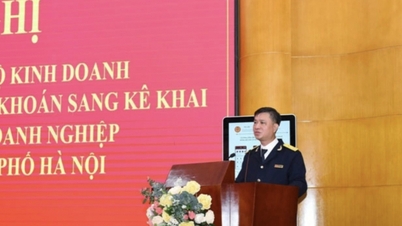



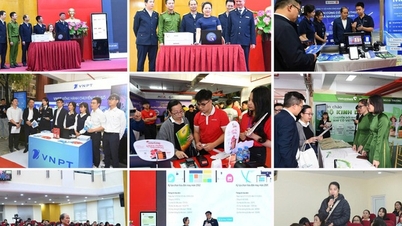


















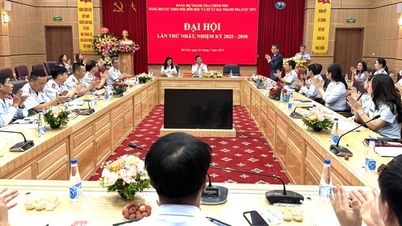


























































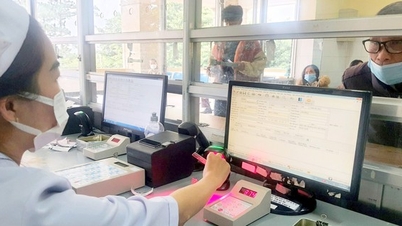





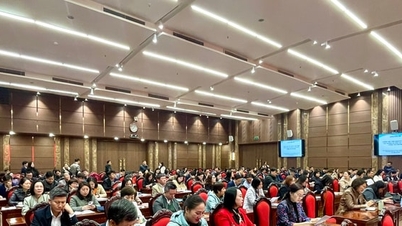


















Comment (0)